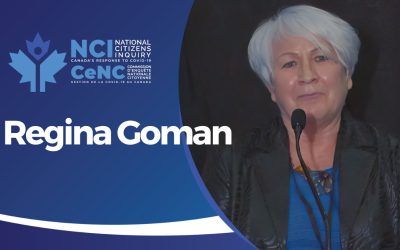If, as the cliché goes, the only two certainties in life are death and taxes, a new political certainty is that those attached to institutional day care will regularly slam the federal Conservative plan to scrap the $5 billion program initiated by the now-deposed Liberals. (The Tories will institute their own version and also pay parents $1,200 for each pre-school child.)
First out of the critic’s gate was the YWCA.
In its recent study, it claimed that its findings dispensed “with many of the assumptions that Canada is too vast and diverse to make a national child-care program viable.”
Translation: taxpayer-funded day care is preferred over sending cash directly to parents to help them choose and fund their own child-care options, be it themselves, a parent, grandparent, other relatives, friends or other options. The YWCA also called for an end to child-care subsidies based on income and wants private operations “converted” (i.e., nationalized) to “publicly funded” day-care centres.
The report drew such conclusions, not after deep, careful polling with fairly worded questions and options.
Instead, the YWCA invited “stakeholders” – which is apparently even what parents have been reduced to in the language of social scientists – to become part of four panels in Halifax, Vancouver, Cambridge and Martensville (Saskatchewan). A rainbow of other participants also showed up: from the education, health, special needs, aboriginal, labour and business sectors.
Anyone who thinks such panels represent parents interested in expanded, flexible options on child care will also respond to e-mail pleas to help transfer money out of Nigeria. Most soccer moms at home part- or full-time were likely a tad busy to spend time with an interest group predisposed against parental choice.
The YWCA’s “findings” are akin to a tobacco company that discovers its panels don’t want tougher anti-smoking laws. Or Bombardier finding self-selected focus groups in the greater Montreal area want higher subsidies for aerospace companies. There’s nothing remotely scientific about the YWCA findings. Bias in, bias out.
For example, the YWCA claims it found that mothers at home and those in the labour force want early learning programs for children. No doubt plenty of parents want an occasional break from little Suzy or Ibrahim. But from that, the YWCA concludes most parents don’t want direct $1,200 payments, which would increase their child-care choices? Nice try.
As for the suggestion that income testing on day-care subsidies should end in favour of some expensive, Quebec-style, universal program, there are at least two reasons that’s a bad idea. First, Quebec’s version is subsidized by the have provinces, such as British Columbia, Alberta and Ontario, through federal equalization and transfer payments. Thus, residents in those provinces fund lavish day-care arrangements in general and subsidies to even the very richest Quebec families in particular.
Which brings up the second relevant point: where day care is necessary, existing targeted subsidies are preferable over unfocused universality.
It’s sensible to hand cash directly to a single mom with three kids rather than force her to live off welfare.
But it makes zero sense to force taxpayers to subsidize a two-income, two-kid couple earning $250,000 every year. (And this is also where the Tory $1,200 plan falls down; it should be income-tested.)
Such universality would punish the middle-income, single-earner families who sacrifice to live on one income.
It would also inadvertently push more parents into the workforce, even if their preference is to stay home full- or part-time.
The YWCA’s report on child care was advocacy dressed up – weakly and transparently – as dispassionate analysis. It was funded by Human Resources and Development Canada.
Perhaps the new government should revisit its budget for that federal agency.
Mark Milke (mmilke@telus.net) is author of the forthcoming A Nation of Serfs?


